You may show prestigious schools and universities that you can think critically, do in-depth research, and provide original analysis by writing and publishing your own independent research projects while still in high school. Everything you need to know to successfully tackle independent study ideas will be covered in this comprehensive book. You'll discover how to formulate an intriguing subject, carry out a thorough investigation, and eventually publish your results.
What is an Independent Research Project?
A self-directed examination of a topic or academic question that sparks your interest is known as an independent research project. In contrast to class assignments, independent research allows you to explore your interests and hobbies. These kinds of projects can differ significantly between scientific and academic areas, but they are all characterized by a systematic approach to addressing a research subject. In particular, you will need to gather information, evaluate it, and make inferences.
A high school student may still need some guidance from a teacher or other knowledgeable researcher in order to conduct high-quality research. However, you, the student, should be the source of the project research ideas. Creating unique research and analysis on a subject you are passionate about is the ultimate goal.
How To Conduct an Independent Research Project?
- Obtain Professional Advice and Mentoring
Working with more seasoned mentors who can assist you in learning the ins and outs of research projects is recommended for high school students who are just beginning to conduct research. Mentors can help you through the process and are typically professors, post-doctoral researchers, or graduate students who have a lot of experience working on individual projects.
Your mentor will specifically give you advice on how to formulate research questions, devise procedures, analyze data, and successfully communicate findings. Sign up for an online academic research mentorship program that focuses on high school students to locate mentors in your research project area of interest rapidly. Professors and graduate students would meet with you one-on-one to assist you in refining your research and publish your findings.
Your independent project ideas can also be turned into a study that is appropriate for publishing in pertinent research journals with the assistance of the correct mentor. Mentors will use their expertise to help you adhere to best practices and appropriate research methodologies. By doing this, you can make sure your work satisfies the requirements and prevent journal rejection.
- Create an Intriguing Research Question
The next stage is to formulate a question you wish to answer in that field after you have a better understanding of the kind of independent research that best fits your interests and strengths, as described in the previous section. This will be the cornerstone of your entire project and is known as a research question.
Your entire project will be guided by the research topic, so it must be both complicated enough to warrant examination and understandable enough to be studied. The following advice can help you construct your study question:
- Make sure your research question or questions relate to subjects you are interested in and know a little bit about. This is a question that will take a lot of your time.
- Seek input and direction on crafting a viable, significant inquiry from your mentor instructor or professor.
- Steer clear of questions that are too general and better suited for doctoral dissertations. Focus on something that interests you but is also manageable.
- "How does social media usage affect teen mental health?" is an example of a legitimate research topic. The main variables you'll be looking into should be outlined in the query.
- Make sure your inquiry and intended strategy are morally sound. Permission to investigate human subjects may be required.
- To be sure your question hasn't previously been addressed, do some preliminary research. You wish to make a novel contribution to your field.
- Establish a deadline and draft a proposal
Creating a timeframe for the completion of your research project comes after defining your research question. You'll maintain organization and strengthen your time management abilities as a result. Make a timetable that lists all of the important dates from the beginning to the end. Make sure you have enough time in your timetable for data analysis, experimentation, research, and report compilation. Don't forget to account for unforeseen delays at all times.
Write a 1-2 page research proposal including your topic, aims, methods, schedule, resources, and expected outcomes to provide you a clear idea of the steps involved in your independent study. Before you begin your research, get input from your mentor to make the proposal better. It takes self-control to keep to your schedule. However, make an effort to meet your objectives and due dates; this will develop priceless practical time and project management abilities. Now that you have a plan, it's time to start your research.
- Do a Thorough Research
A student is actively working on a research project at this time. Your project type and field will have a significant impact on the exact approach you take. Your approved study proposal should already include a description of your methodology. Nonetheless, the majority of independent research follows a similar fundamental procedure:
- Examine previous research: To grasp what is currently known about your topic and to guide your own hypothesis or framework, conduct a literature review. Examine pertinent research, papers, and articles.
- Make materials for the methodology: Create your own independent research methods to collect information. Experiments, surveys, interviews, field observations, and the examination of pre-existing artifacts such as texts or datasets may all be part of this.
- Equipment and Permissions: Obtain the required tools and authorization. For instance, a recording device and participant consent are required while conducting interviews.
- Gather necessary data: Conduct experiments and document findings for science initiatives. Gather survey participants and compile their answers. Collect enough information to make reliable judgments.
- Use the proper methods to analyze the data: While qualitative data necessitates theme coding, quantitative data may involve statistical analysis. Seek guidance from your mentor.
- Analyze the results: Be careful not to exaggerate findings. Seek out trends and connections that clarify your research question. Retain strict objectivity at all times.
Write Your Final Paper and Presentation
After your research is over, it's time to write the final report and create the presentation so that you may show your results to the public. This entails combining your research into lucid, engaging reporting. There will probably be a lot of writing and editing involved in the paper's draft. To get the paper perfect, be ready to go through several revisions. Your mentor can give you examples of independent research that is relevant to your field; adhere to the format that is typically employed in academic publications in that discipline. The finished item ought to contain:
- Abstract: A short summary of your project and conclusions.
- Introduction: Background on your topic, goals, and research questions.
- Literature Review: Summary of relevant existing research in your field.
- Methods: Detailed explanation of the methodology and process of your study.
- Results: Presentation of the data and main findings from your research. Using visual representations like charts was helpful.
- Discussion: Objective interpretation and analysis of the results and their significance.
- Conclusion: Summary of your research contributions, limitations, and suggestions for future work.
- References/Bibliography: Full citations for all sources referenced.
Follow precise guidelines for academic writing to maintain objectivity and clarity in your work. Generally speaking, limit your writing to 10–15 pages, which is suitable for student work. However, depending on the nature of your project, you might need to write more.
- Finally, Research Presentation
You should develop a presentation to deliver your research orally after producing your research project report. Additionally, a study presentation offers a concrete chance to hone your public speaking and visual communication abilities. Slides, handouts, demonstrations, and other tools will be used in your presentation to draw in the audience and emphasize important details from your independent study project.
Your final paper should probably be published in appropriate journals and publications after it has been written. You have a few choices for formally publishing your independent high school study, including:
- Submitting your paper to academic journals and competitions
- Presenting at symposiums and science fairs
- Sharing on online research databases
- Adding your work to college applications
You can share your findings with a broader audience of students and scholars by publishing your independent project. It also makes all of your hard effort more impactful.
If you need assistance coming up with an idea for an independent study, knowing the many kinds and classifications will help. Independent research topics typically fall into one of many major categories:
- Science Experiments
- Social Science Surveys and Studies
- Literary Analysis Paper
- Programming or Engineering Project
- Historical Research
- Artistic and Creative Works
Why Is Independent Research Important for High School Students?
Independent study projects help high school students acquire important skills and experiences that will benefit them in their college and professional endeavors. Below is a summary of what you will usually get:
- Develop your ability to think critically and solve problems
You can gain firsthand experience with critical research skills such as developing hypotheses, planning studies, gathering and evaluating data, and interpreting findings by working on an independent project. You will benefit greatly from these abilities both in college and in any line of work.
- Make a Statement on College Applications
Given that many applicants have comparable exam scores and GPAs, an independent research project offers an opportunity to differentiate oneself from the competition. High school research projects demonstrate to universities your drive and ability to perform high-caliber work. Your application's strengths at prestigious colleges and universities might be strengthened by highlighting your research methodology, conclusions, and contributions in your essays or interviews.
- Get Scholarships
Particularly in STEM professions, completing an independent research project increases your chances of being selected for merit-based scholarships. Students who demonstrate initiative by working on projects outside of class requirements are often awarded awards. Scholarship committees will be impressed by your research project ideas, which will showcase your abilities and drive.
- Acquire Knowledge of the Subject Area
Beyond what is taught in the classroom, independent projects provide you the chance to fully immerse yourself in a subject that interests you. It's an opportunity to master a subject you're enthusiastic about. In-depth knowledge of the subject you decide to study will be developed, which might enhance what you learn in related courses. Your professional interests and objectives may even benefit from this knowledge.
- Time Management
The ability to efficiently organize, prioritize, and prevent procrastination is known as time management. Independent study assignments necessitate excellent time management, self-discipline, and personal responsibility—skills essential in college and adulthood—because there is no teacher to walk you through every step.





